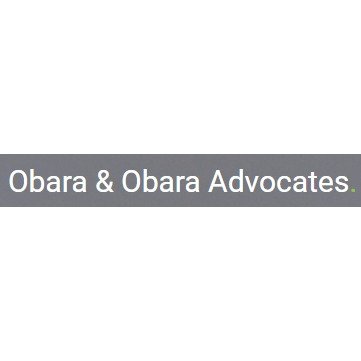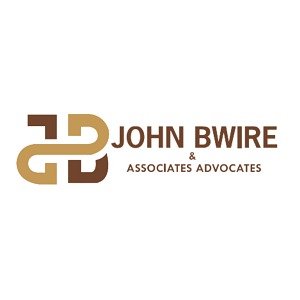Best Employment & Labor Lawyers in Mombasa
Share your needs with us, get contacted by law firms.
Free. Takes 2 min.
List of the best lawyers in Mombasa, Kenya
Kenya Employment & Labor Legal Articles
Browse our 1 legal article about Employment & Labor in Kenya written by expert lawyers.
- Understanding Kenyan Employment Law: A Guide for Small Businesses
- Kenya's vibrant small business ecosystem is a critical driver of the country's economic growth, but navigating the complex landscape of employment law can be challenging for entrepreneurs. Whether you're a local startup founder or a foreign investor looking to establish a business in Kenya, understanding the legal framework surrounding employment... Read more →
About Employment & Labor Law in Mombasa, Kenya
Employment and Labor law in Mombasa, like the rest of Kenya, is primarily governed by the Labour Relations Act of 2007, the Employment Act of 2007, the Work Injury Benefits Act, and the Occupational Safety and Health Act. These Acts provide a comprehensive framework to regulate the conditions of work, terms of employment, and labor relations between employers and employees. They encompass issues such as contract terms, minimum wage guidelines, working hours, holiday entitlements, and termination procedures.
Why You May Need a Lawyer
There are several situations in which one might find themselves needing legal counsel in the field of Employment & Labor. These include cases of wrongful termination, disputes related to salary and other benefits, cases of occupational injury, unethical treatment in the workplace, discrimination, and issues related to collective bargaining. Navigating these legal situations can be complex and a lawyer can help ensure your rights as an employee are protected and upheld.
Local Laws Overview
The key aspects of local laws that are relevant to Employment & Labor in Mombasa, Kenya include; compulsory written contracts for durations exceeding 3 months of employment, mandatory provision for a minimum wage regulated by the government, restrictions on child labor and forced labor, provision for a 45-hour work week and paid vacations and holidays. Additionally, labor laws also outline the procedures for lawful termination and provide a framework for redundancy payouts, maternity benefits, and protection against discrimination in the workplace.
Frequently Asked Questions
1) What should I do if I'm wrongfully terminated?
If you believe you have been wrongfully terminated, you should seek legal counsel. The Employment Act of 2007 provides mandatory procedures that must be followed when terminating employment, providing safeguards against unfair dismissal.
2) How does maternity and paternity leave work in Mombasa?
According to Kenyan laws, both mothers and fathers are entitled to maternity and paternity leaves respectively. Mothers get three months paid leave whereas fathers get two weeks. This is fully paid by the employer.
3) What laws exist to protect against discrimination or harassment in the workplace?
The Employment Act prohibits any form of discrimination whether due to age, race, sex, religion, or disability at the workplace. Breach of this is punishable by law.
4) What are the normal working hours according to Kenyan labor laws?
The standard working hours in Kenya are 45 hours in a week, with 8 hours a day from Monday to Friday and 5 hours on Saturday.
5) What is the process for resolving labor disputes in Mombasa?
Most labor disputes can be resolved through collective bargaining, arbitration, or mediation. If these methods fail, the dispute may be taken to the Employment and Labor Relations Court.
Additional Resources
The Ministry of Labor and Social Protection is a key governmental body that provides guidance and oversight on matters related to employment and labor. The Federation of Kenya Employers (FKE) and Central Organization of Trade Union (COTU) also offer useful resources for both employers and employees respectively.
Next Steps
If you need legal assistance in Employment & Labor law, consider finding a lawyer specializing in this area. You could also seek free legal advice from organizations like Kituo Cha Sheria. Always remember to raise a formal complaint with your employer before taking legal action.
Lawzana helps you find the best lawyers and law firms in Mombasa through a curated and pre-screened list of qualified legal professionals. Our platform offers rankings and detailed profiles of attorneys and law firms, allowing you to compare based on practice areas, including Employment & Labor, experience, and client feedback.
Each profile includes a description of the firm's areas of practice, client reviews, team members and partners, year of establishment, spoken languages, office locations, contact information, social media presence, and any published articles or resources. Most firms on our platform speak English and are experienced in both local and international legal matters.
Get a quote from top-rated law firms in Mombasa, Kenya — quickly, securely, and without unnecessary hassle.
Disclaimer:
The information provided on this page is for general informational purposes only and does not constitute legal advice. While we strive to ensure the accuracy and relevance of the content, legal information may change over time, and interpretations of the law can vary. You should always consult with a qualified legal professional for advice specific to your situation.
We disclaim all liability for actions taken or not taken based on the content of this page. If you believe any information is incorrect or outdated, please contact us, and we will review and update it where appropriate.
Browse employment & labor law firms by service in Mombasa, Kenya
Mombasa, Kenya Attorneys in related practice areas.

















